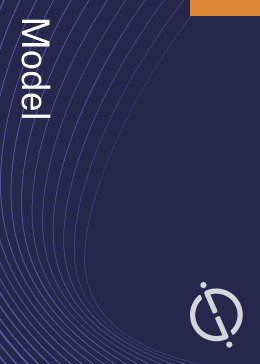Norovirus [strains Norwalk GI.1 + Sydney GII.4] (bivalent) vaccine is a recombinant vector vaccine commercialized by Vaxart, with a leading Phase II program in Norovirus Infections. According to Globaldata, it is involved in 6 clinical trials, of which 3 were completed, and 3 are ongoing. GlobalData uses proprietary data and analytics to provide a complete picture of Norovirus [strains Norwalk GI.1 + Sydney GII.4] (bivalent) vaccine’s valuation in its risk-adjusted NPV model (rNPV). Buy the model here.

Discover B2B Marketing That Performs
Combine business intelligence and editorial excellence to reach engaged professionals across 36 leading media platforms.
The revenue for Norovirus [strains Norwalk GI.1 + Sydney GII.4] (bivalent) vaccine is expected to reach an annual total of $264 mn by 2038 in the US based off GlobalData’s Expiry Model. The drug’s revenue forecasts along with estimated costs are used to measure the value of an investment opportunity in that drug, otherwise known as net present value (NPV). Applying the drug’s phase transition success rate to remaining R&D costs and likelihood of approval (LoA) to sales related costs provides a risk-adjusted NPV model (rNPV). The rNPV model is a more conservative valuation measure that accounts for the risk of a drug in clinical development failing to progress.
Norovirus [strains Norwalk GI.1 + Sydney GII.4] (bivalent) vaccine Overview
The vaccine candidate is under development for the prevention of norovirus gastroenteritis. It is a bivalent adenovirus type 5 vector based vaccine consisting of norovirus GI.1 Norwalk strain and norovirus GII.4 Sydney strain. The vaccine candidate is formulated as the enteric-coated tablet for oral administration. It is developed based on vector-adjuvant-antigen standardized technology (VAAST) platform.
Vaxart Overview
Vaxart, formerly Aviragen Therapeutics, is a clinical-stage pharmaceutical company that develops oral recombinant vaccines based on its proprietary oral vaccine platform, using state-of-the-art recombinant technology. The platform enables the company to develop oral versions of currently available vaccines and design recombinant vaccines for new indications. The company is developing prophylactic vaccine candidates for a range of infectious diseases, including norovirus infection, seasonal influenza, respiratory syncytial virus (RSV) infection, and coronavirus (COVID-19) disease. It is also developing a therapeutic immune-oncology vaccine, which targets cervical cancer and dysplasia caused by human papilloma virus (HPV). Vaxart is headquartered in San Francisco, California, the US.
The company reported revenues of (US Dollars) US$7.4 million for the fiscal year ended December 2023 (FY2023), compared to a revenue of US$0.1 million in FY2022. The operating loss of the company was US$83.4 million in FY2023, compared to an operating loss of US$107.6 million in FY2022. The net loss of the company was US$82.5 million in FY2023, compared to a net loss of US$107.8 million in FY2022.
The company reported revenues of US$6.4 million for the second quarter ended June 2024, compared to a revenue of US$2.2 million the previous quarter.
For a complete picture of Norovirus [strains Norwalk GI.1 + Sydney GII.4] (bivalent) vaccine’s valuation, buy the drug’s risk-adjusted NPV model (rNPV) here.
Data Insights
From

The gold standard of business intelligence.
Blending expert knowledge with cutting-edge technology, GlobalData’s unrivalled proprietary data will enable you to decode what’s happening in your market. You can make better informed decisions and gain a future-proof advantage over your competitors.



